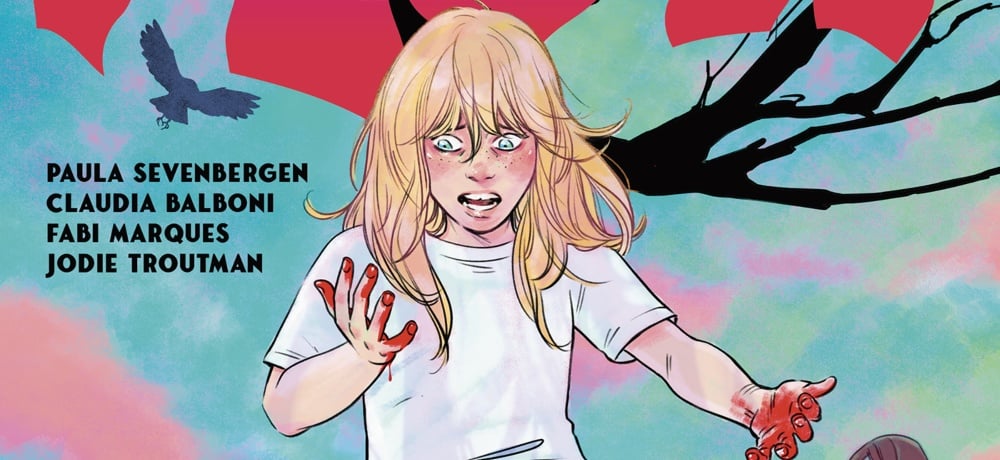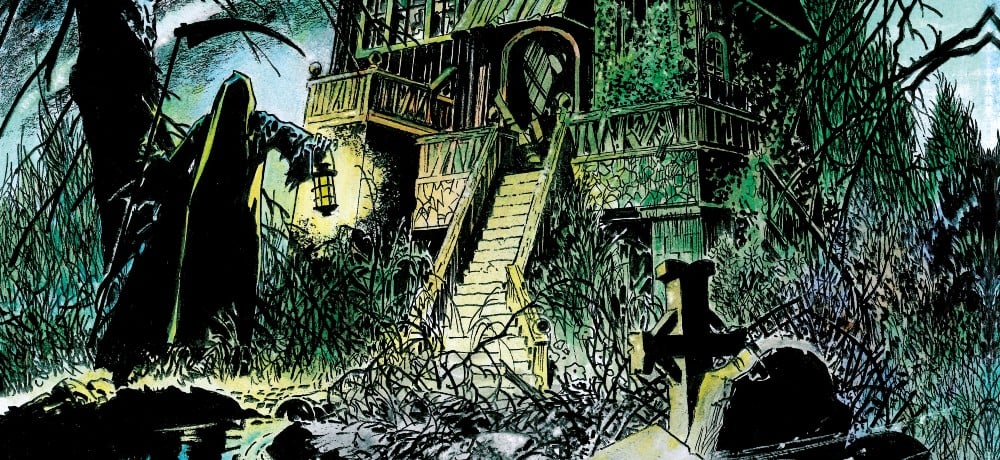





While in San Diego covering all the 2018 Comic-Con festivities, Daily Dead had the opportunity to speak with director Michael Chaves and actress Patricia Velasquez, who recently collaborated on the upcoming New Line Cinema project, The Curse of La Llorona. Based on the Mexican folklore that has terrorized generations upon generations of naughty children who have grown up in fear of “The Weeping Woman,” La Llorona also co-stars Linda Cardellini, Raymond Cruz, Marisol Ramirez, and Sean Patrick Thomas.
During the interview, Chaves discussed how a previous short film landed him the opportunity to helm The Curse of La Llorona, and Velasquez chatted about some of the powerful themes at play in the project. The duo also dug into the cultural importance of the story of La Llorona, and making sure they got it right for the big screen.
Look for The Curse of La Llorona in theaters everywhere on April 19th, 2019.
Michael, I know you had directed a short film a couple of years ago that was at Shriekfest. How did the stars align for you to come aboard and take this on as your feature film debut?
Michael Chaves: Honestly, it was a lot of luck. I have to say that's the biggest thing. I was directing commercials before that and I did this short film called The Maiden, about this real estate agent who sells a haunted house. When I put it online, literally within a week I got an agent. That Friday, he gave me a script which was called The Children at the time because it was a codename. No one wanted to let it out that they were making a La Llorona movie because so many people were trying to make a La Llorona movie. Or they probably were up until now.
I read it over the weekend and I went in on Monday and met with New Line, and it was amazing. I was hired like a week later, so I think they just saw a lot of similar sensibilities with the short and we also just really got along. We had the same sensibilities. I grew up watching New Line movies. I would draw comics where I would pit Freddy Krueger versus Wolverine, and I would put the New Line logo in front of it. I don’t think I have ever told anybody that, so that is an exclusive [laughs].
Patricia, from your perspective, because this is something that is so familiar to so many people and it has become this tradition, is there a weight that comes with being a part of something like this and taking on a role within this cultural mythos?
Patricia Velasquez: Definitely. It's a big responsibility. At the beginning, we all are actors and we want to be a part of movies that are going to be successful, but at some point, you have to draw the line when you know that something is going to hurt your culture or something is going to hurt your values. When I read the script, I fell in love with it. I thought this was really giving an homage to La Llorona in the most respectful way.
Then, when I met with Michael, the way he worked with me in the room, I remember I came out and I literally sat in my car and I called my agent and I said, "I've never worked with a director like that." He really knows what he wants, but he does it in a way that is respectful to your craft. So, you can bend, you can go this way, or that way. I just felt like I could really trust him. So, not only am I honored, I'm extremely proud because this is a movie that is going to last for many, many years. This is a movie that people are going to talk about. It's a legend, it's never truly been done this way and it's just extremely important to our culture.
Michael, I'm guessing from your perspective as a filmmaker there is a different kind of weight that sits on your shoulders when you go into a project like this?
Michael Chaves: Yeah, I think because it's such a cultural touchstone, and beyond just being a cultural tradition, it's also a family tradition. This is something that abuelas would tell their grandkids for hundreds of years. It was always, “You better be good or La Llorona is going to get you.” That was a huge weight, and we did a lot of research and there were a lot of discussions. I really feel like we made absolutely the best La Llorona movie that could be made. It's scary as hell.
Patricia Velasquez: Michael was so incredibly careful about every little thing that is related to the legend within the context of this wonderful story. He took such good care of it. I think people will really enjoy it.
Was there a reason in setting this film during the 1970s? I think from what we saw last night, it really gives the film this great, timeless feeling.
Michael Chaves: Yeah, that was the aim. What I loved about setting it in the ’70s, was that we wanted it to be pre-Internet. So much of the story is about discovery and learning about this mystery and uncovering the mystery, so that becomes a lot simpler and less interesting if you have the Internet. But I personally think the 1970s are just awesome for so many reasons. It has a great style, it has a great texture, and there is this great horror tradition of movies from that era that we were leaning into as well. There might be a specific reason why we put it in the ’70s that you'll probably see as more stuff comes out. I don't want to say too much about that, but there’s something hidden in there.
For as much as it seems like this is a story that you want to scare people with, it also seems like it's a story driven by this idea of motherhood and loss and reconciling those things. From your perspective, Patricia, how interesting was it to dive into those themes?
Patricia Velasquez: I feel that there are so many powerful messages about La Llorona. She is as important to us as the Virgin Mary is, but when you really dig in, there is the story of the good and the bad. There is the story of mistakes that we make, how far can we go in repentance? Also, it's this story of motherhood and how far are we willing to go in order to protect our children? There is no other feeling as strong as that.
In the case of the original story, the man cheats on the wife and then goes with a younger woman or in another version of the story, he leaves her, he leaves town. And in her desperation, because he loved the children so much, she drowns the children in the river. When she wakes up, she realizes what she's done and forever wanders, trying to call on her children.
There are so many different metaphors, we could literally be here until tomorrow going through everything. It's so timely, creating a story about this idea of separating children from their parents. There are just so many elements to this story that relate to our society, as well as our Hispanic culture as a whole.